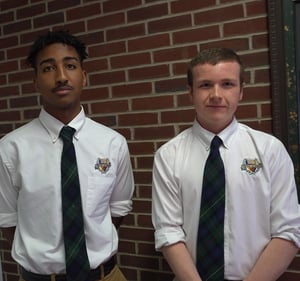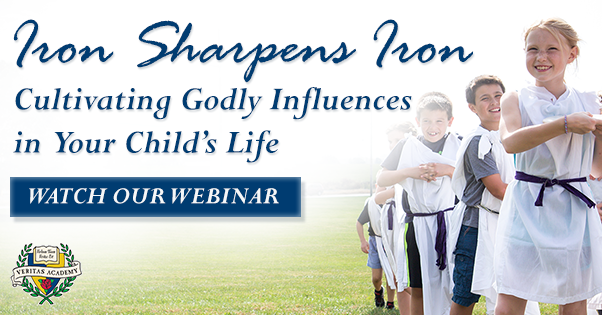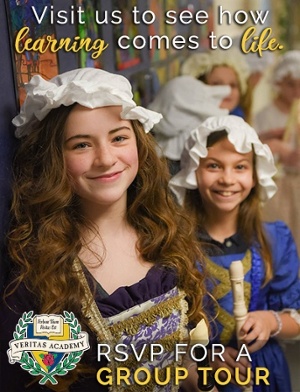This recent election season was just one more in a long line of cultural case studies illustrating how politics and government can bring out the worst in the people of a society.
Smear campaigns. Outright candidate lies. Social media firestorms. Degrading memes. Even friendships ruined.
Our children are witnessing all of this, taking in our responses and the onslaught of input from our culture around us. What are we showing them about God's sovereignty, about our role in our country, and about the complexities of governing a nation?
Do we forget the incredible blessing it is that we can even freely have these conversations? Do we realize how the issues today have been shaped (and reshaped) over thousands of years, miles, and cultures? Can we take a step back and grasp the fact that our country is not synonymous with our Christ? How many believers truly understand what role the church can or should have in politics?
 These are some questions our senior class grapples with as part of their Omnibus instruction with Dr. Daniel Spanjer, who is a professor at Lancaster Bible College. Machiavelli may seem like a distant and irrelevant topic to many, but these students are engaging in discussion that is helping them make sense of today's issues in light of history's narratives and through critical Christian worldview thinking.
These are some questions our senior class grapples with as part of their Omnibus instruction with Dr. Daniel Spanjer, who is a professor at Lancaster Bible College. Machiavelli may seem like a distant and irrelevant topic to many, but these students are engaging in discussion that is helping them make sense of today's issues in light of history's narratives and through critical Christian worldview thinking.
Get a glimpse into their recent class discussions and hear from Dr. Spanjer on how he relates history, politics, and theology to high school students - who are proving more than capable of handling these weighty topics with this video below.
"Often Christians grow up trying to politicize their Bible or Biblicize their politics, and that's dangerous for so many reasons but ultimately what it does is it waters down the truths of Scripture," Spanjer notes.
He hopes that students can learn to see politics as a very important pragmatic environment, realizing that "we can go out and support a policy or a politician or a piece of legislation because I'm not saying this is my theology at work, I'm saying this is a really good way to solve human problems. I want to be energized about dealing with problems of poverty and morality and my community, without equating those policies with what I think is true about my Christ or saying 'if the politics fail, therefore my Jesus fails.'
"I think what we've got to give students is a way to help them protect their theology and what they believe about Christ - that's not politics - but then to help them know that their theology requires them to act pragmatically in politics."

One parent told us about how her son was relaying in great detail - and with great excitement - Dr. Spanjer’s class and what they are learning this year. She says her son is" really appreciating how Dr. Spanjer is teaching the classes, and he has quite a good handle on how to evaluate current societal and political trends."
It's important for us as parents and teachers to help equip our kids to think critically about the issues presented in our society, giving them the tools from history, God's word, and their experiences to join in civil discourse and action. We don't need to water it down or prescribe to our kids exactly what they should think, but by building on a solid theological foundation and introducing these tough concepts now, we help them grow into better citizens - of both our nation and God's kingdom.
Just like the son of the mom mentioned earlier, students are relishing this course and the depth of Dr. Spanjer's teaching - even if it means furious note taking and a whole lot of information to digest.
"Even though it's a lecture style, Dr. Spanjer makes it so enjoyable. Yes, it's a lot of information, a lot of note taking...but I love it, to be honest," admits senior Jermaine (JJ) Maina-Perez.

"It gives us an in-depth analysis on how politics worked back then and why the political system we have in modern society is so much more logical," JJ says. "It makes you appreciate America because I think we take it for granted sometimes. Obviously, we have disagreements about how our politics should be run nowadays, but it's much better than what it was back then."
"Seeing, structurally, what leads to things like humanism and why people look to different things for hope, it shows kind of a dark aspect of how humankind is maturing in a way," senior Pierce Knepley adds. "It's not necessarily about the leadership, or about how the government is set up - even in a theonomic society. It's about the heart of the people."







